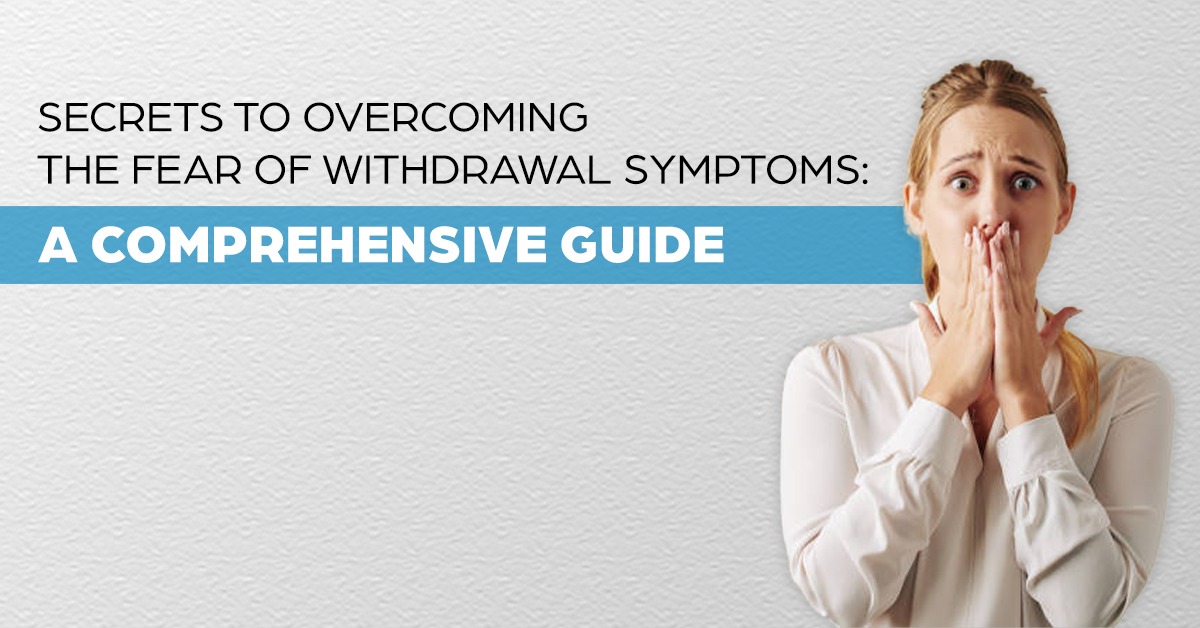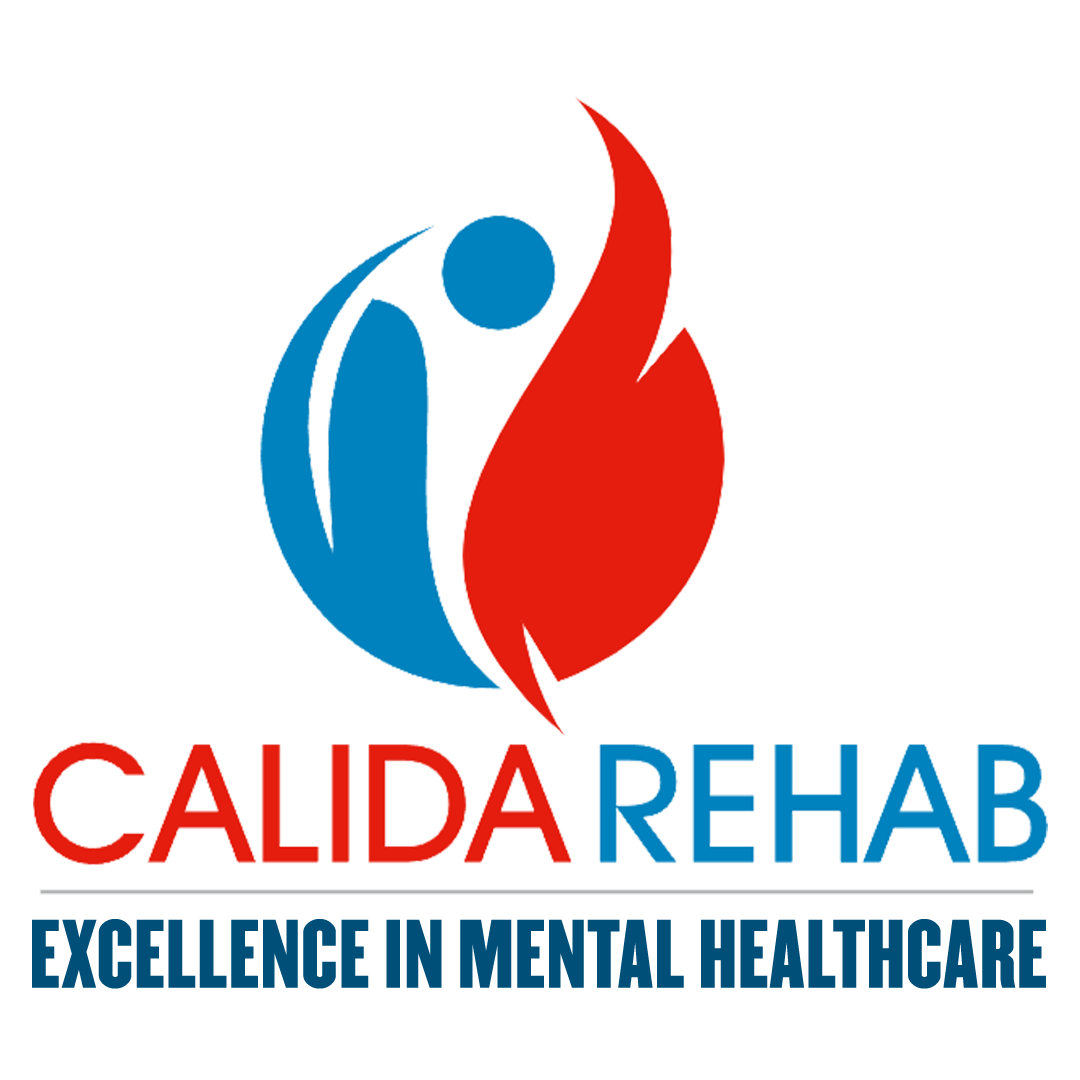
Secrets to Overcoming the Fear of Withdrawal Symptoms: A Comprehensive Guide
Withdrawal symptoms are one of the most daunting aspects of addiction recovery, often striking fear, anxiety, and uncertainty in the minds of those who are looking to break free from alcohol, drugs, or other behavioral addictions. The very thought of withdrawal can deter many individuals from seeking treatment or starting their recovery journey. However, understanding how to effectively manage and overcome this fear is a key component of a successful recovery process. In this blog, we will explore the top secrets to overcoming the fear of withdrawal symptoms, providing invaluable insights and strategies that can help individuals and their loved ones through this challenging phase.
1. Knowledge is Power: Understanding Withdrawal Symptoms
The first and most crucial step in overcoming the fear of withdrawal is to understand what withdrawal symptoms entail and why they occur. When the body has become dependent on a substance, such as alcohol, opioids, or prescription medications, it develops a physical reliance. When the substance is suddenly removed, the body responds with withdrawal symptoms, which are a reflection of the body's attempt to regain equilibrium.
Withdrawal symptoms can range from mild discomfort to more severe and even life-threatening effects, depending on the type of substance, the duration of use, and the individual’s overall health. Common withdrawal symptoms include:
- Physical symptoms: Tremors, sweating, headaches, nausea, vomiting, fatigue, and muscle aches.
- Psychological symptoms: Anxiety, depression, irritability, mood swings, restlessness, and confusion.
- Severe symptoms: In extreme cases, withdrawal from alcohol or certain drugs like opiates can lead to seizures, hallucinations, or delirium tremens (DTs), which can be life-threatening.
By understanding that withdrawal symptoms are a temporary stage in the healing process, the fear surrounding them can be reduced. Withdrawal signals that the body is beginning to heal and recalibrate itself after the cessation of the addictive substance. This knowledge is empowering and helps shift focus away from the fear and discomfort, towards the goal of recovery.
2. Seek Professional Support: Don’t Face Withdrawal Alone
One of the biggest fears associated with withdrawal is the concern of not being able to manage the symptoms on your own. It's vital to remember that you do not have to face withdrawal alone. Seeking professional help through a rehab center is crucial for both physical and emotional support during this process. Medical professionals specializing in addiction recovery are trained to guide individuals through withdrawal safely and effectively.
Reputable rehabilitation centers in Mumbai and Pune offer medical detox programs tailored to your needs, providing round-the-clock supervision, therapy, and medication management. These centers offer a safe environment where withdrawal symptoms can be monitored closely. The experienced doctors and counselors at these facilities can adjust treatment plans in real-time, ensuring that symptoms are managed and discomfort is minimized.
Furthermore, medications can be administered to ease withdrawal symptoms. For instance, benzodiazepines can help with anxiety and insomnia during alcohol withdrawal, while methadone or buprenorphine can be used to taper off opioid dependence gradually. These treatments help individuals feel more at ease and supported throughout the detox process.
3. Gradual Detox: Tapering Off to Minimize Discomfort
The abrupt cessation of substance use can lead to intense withdrawal symptoms, triggering fear in individuals who are just beginning their recovery journey. One of the most effective ways to minimize withdrawal symptoms is through a gradual detox process. Instead of quitting a substance all at once, medical professionals typically use a tapering approach, slowly reducing the substance's dosage over time. This method allows the body to adjust more comfortably, minimizing the shock of sudden withdrawal.
For example, individuals recovering from alcohol addiction can benefit from a gradual reduction in their alcohol intake, allowing the body to slowly recalibrate its chemical balance. This approach significantly reduces the risk of severe withdrawal symptoms, such as seizures or hallucinations. Similarly, people recovering from opioid addiction can be safely weaned off using medications that ease the transition, such as methadone or buprenorphine.
By working with professionals at a rehab center offering detox programs in Pune or Mumbai, individuals can ensure that the tapering process is done in a controlled, medically-supervised manner, reducing the fear of withdrawal-related risks.
4. Holistic Support: Combining Therapy and Self-Care
While medical interventions are vital, it’s equally important to address the emotional and psychological aspects of withdrawal. Holistic therapies offer a powerful complement to traditional medical treatments, helping individuals manage fear, stress, and anxiety during the withdrawal process. Cognitive Behavioral Therapy (CBT), mindfulness-based therapies, and group therapy sessions can provide crucial emotional support, helping individuals stay calm and focused.
At rehab centers in Mumbai and Pune, many centers integrate holistic mental health treatments alongside medical detox programs. Therapies like yoga, meditation, and deep breathing exercises can help individuals stay grounded and calm when they feel overwhelmed by fear or discomfort. Additionally, these therapies have been shown to reduce stress hormones in the body, which can help alleviate anxiety and improve overall well-being.
A psychologist or therapist can also guide individuals through counseling sessions to process the emotional trauma that may have contributed to their addiction in the first place. These therapeutic sessions offer a space to address the mental and emotional aspects of addiction, which can help individuals manage the fear of withdrawal more effectively.
5. Building a Support Network: Stay Connected with Loved Ones
The fear of withdrawal symptoms often stems from feelings of isolation and uncertainty about the recovery process. One of the most important ways to overcome this fear is by building a strong support network. The emotional support of family, friends, and fellow recovery participants can be invaluable during this time.
At many rehabilitation centers in Mumbai and Pune, patients are encouraged to involve their loved ones in the recovery process through family counseling. These sessions educate families about the withdrawal process, providing them with tools to support their loved one through this challenging phase. Knowing that your loved ones are informed, empathetic, and available to offer encouragement can significantly reduce feelings of fear and isolation during withdrawal.
Group therapy can also provide a sense of community. Connecting with others who are going through similar experiences can help reduce fear and build solidarity. Many individuals find strength in sharing their challenges and progress with others who truly understand.
6. Stay Focused on Your Goal: The Power of Positive Thinking
Fear often arises from uncertainty about the future and the unknown nature of withdrawal. However, staying focused on your recovery goals can be a powerful way to overcome the fear of withdrawal. Individuals who visualize a healthier, addiction-free life are more likely to overcome the obstacles in front of them.
During withdrawal, it can be helpful to remind yourself why you decided to start this journey in the first place. Perhaps it's to regain control of your life, improve your health, repair relationships, or simply achieve a greater sense of self-worth. By focusing on the long-term benefits of sobriety, individuals can reduce the anxiety and stress that withdrawal often brings.
Maintaining a positive mindset can also help individuals stay calm and confident, even in the face of discomfort. Positive self-talk, affirmations, and maintaining a sense of hope can make a significant difference in overcoming withdrawal fears.
7. Celebrate Small Victories: Every Step Counts
Withdrawal can be tough, and it’s easy to become overwhelmed by the symptoms and challenges. However, it’s important to celebrate each victory, no matter how small. Whether it's making it through a day of detox or attending a counseling session, recognizing and celebrating progress is an essential part of the recovery process.
By acknowledging milestones—such as staying sober for a day, completing a detox session, or managing a particularly challenging symptom—individuals can build confidence in their ability to overcome the fear of withdrawal. These small victories are proof that recovery is possible, and they can motivate individuals to continue their journey.
Conclusion
Overcoming the fear of withdrawal symptoms is one of the most challenging, yet rewarding, aspects of addiction recovery. With the right knowledge, professional support, a gradual detox process, holistic treatments, a strong support network, and a positive mindset, individuals can successfully navigate the withdrawal phase and continue on the path to long-term sobriety.
If you or a loved one is looking for help in overcoming withdrawal symptoms, consider reaching out to rehab centers in Mumbai and Pune that offer comprehensive detox programs and recovery services. Remember, withdrawal is only temporary, but the rewards of sobriety—improved health, a restored sense of self, and a brighter future—are lifelong. Embrace the journey and trust that the fear of withdrawal will soon become a distant memory, replaced by a newfound sense of hope and strength.
